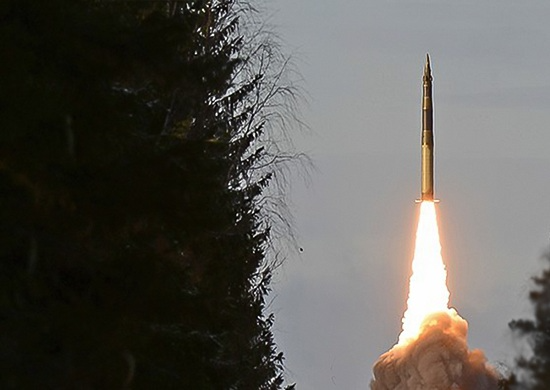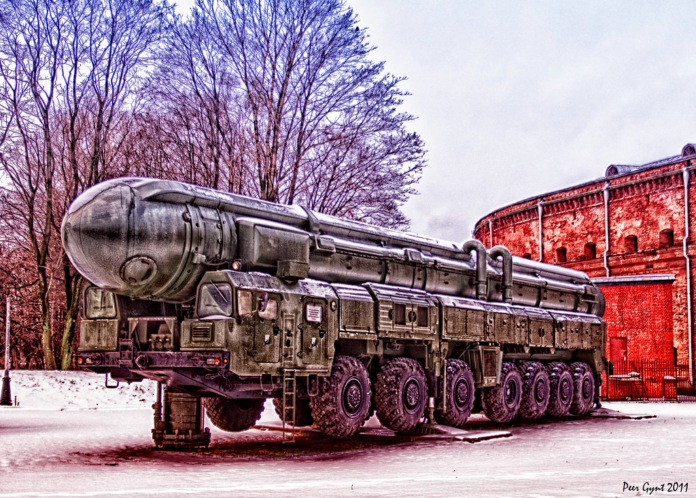Russia reportedly launches an ICBM towards Ukraine, escalating tensions. Discover the details of the missile strike, Ukraine’s response, and the broader geopolitical implications.
Russia Responds to Ukraine’s Long-Range Missile Strike with Major Retaliation
Russia launched a Intercontinental ballistic missile(ICBM) on Ukraine early Thursday, marking its first significant response to Ukraine’s recent strike on a military facility in Bryansk, a region within Russian territory. The Ukrainian assault, carried out earlier this week, utilized American-made long-range missiles known as ATACMS. These weapons were provided to Ukraine with President Joe Biden’s authorization, allowing strikes deeper into Russian territory.
The decision by the U.S. to approve the use of ATACMS came just days before the Ukrainian attack, which targeted strategic Russian assets. This marked a turning point in the ongoing war, with Ukraine leveraging advanced weaponry to gain an edge.
Ukraine’s Official Response
In a statement on its Telegram channel, Ukraine’s Air Force emphasized the severity of the attack and its implications for the ongoing conflict. They reiterated their commitment to defending Ukraine’s airspace, despite the growing intensity of Russian aggression.
While no immediate reports of casualties or injuries have emerged, the damage to critical facilities in Dnipro underscores the high stakes of this escalating war.
The Risks of U.S. Involvement
The Biden administration’s approval of Ukraine’s use of Western-made missiles has been met with a mix of support and concern internationally. Proponents argue that Ukraine has the right to defend itself and target strategic military assets within Russia. Critics, however, warn that such actions could provoke a dramatic response from Moscow, including the possibility of escalating the conflict into a world war.
Russian lawmakers and state media have been vocal about their disapproval, claiming that U.S. involvement is pushing the conflict toward a critical breaking point. These warnings highlight the fragility of the current geopolitical landscape and the potential for further destabilization.
Ukraine’s Resilience and Global Support
Ukraine’s ability to intercept and destroy multiple cruise missiles during the attack is a testament to its improving defense capabilities. With international support, particularly from the United States, Ukraine continues to strengthen its position in the face of relentless Russian aggression. Ukraine urged strong global support against the involvement of North Korea.
As the conflict approaches its 1,000th day, Ukraine’s resilience remains a key focus for its allies. The country’s use of advanced U.S.-made long-range missiles earlier this week demonstrated its readiness to strike back against Russian forces and maintain control over its territory.
The Hot-Mic Incident: Russia’s Tight-Lipped Approach
During a routine press briefing, Russian Foreign Ministry spokesperson Maria Zakharova inadvertently revealed sensitive details about the missile strike. While addressing journalists, Zakharova received a phone call instructing her not to comment on the alleged ballistic missile strike targeting Dnipro’s aerospace plant, formerly known as Yuzhmash.
The hot-mic moment sparked speculation, with the male voice on the call clearly stating that discussing the matter was prohibited. Zakharova later dismissed questions about the incident, asserting that the Foreign Ministry had no official comment on the missile strike.
This incident highlights Russia’s continued efforts to control the narrative surrounding its military actions in Ukraine, even as international scrutiny intensifies.
Implications of Using an ICBM in the Conflict
The potential use of an ICBM by Russia raises serious concerns about the direction of the conflict. Designed for long-range strategic warfare, these missiles are typically reserved for scenarios involving nuclear deterrence or large-scale attacks.

Deploying such a weapon in a regional conflict like the Russia-Ukraine war could have far-reaching consequences. It signals Russia’s willingness to escalate its military campaign, potentially drawing a stronger response from Ukraine and its allies.
International Reactions
Western officials have cast doubt on Ukraine’s claim that an ICBM was used in the attack. They argue that the missile was likely ballistic but not intercontinental. Despite these assertions, the very notion of an ICBM being involved has drawn widespread condemnation and calls for de-escalation.
The Role of International Aid
The ongoing conflict has highlighted the importance of international aid in bolstering Ukraine’s defense capabilities. From air defense systems to advanced weaponry, the support provided by allied nations has been instrumental in enabling Ukraine to counter Russia’s aggression effectively.
What Lies Ahead?
As Ukraine and its allies continue to respond to Russia’s aggression, the world is closely watching the developments. The potential use of ICBMs raises questions about the limits of this conflict and the strategies employed by both sides.
Conclusion
The Russia-Ukraine war has entered a dangerous new phase with the alleged launch of an ICBM. While the specifics of the attack are still being debated, the use of such a weapon underscores the escalating stakes in this protracted conflict.
Ukraine’s resilience and international support will remain crucial as it navigates these challenging times. With the global community keeping a close eye on the situation, the coming weeks could determine the trajectory of this devastating war.
